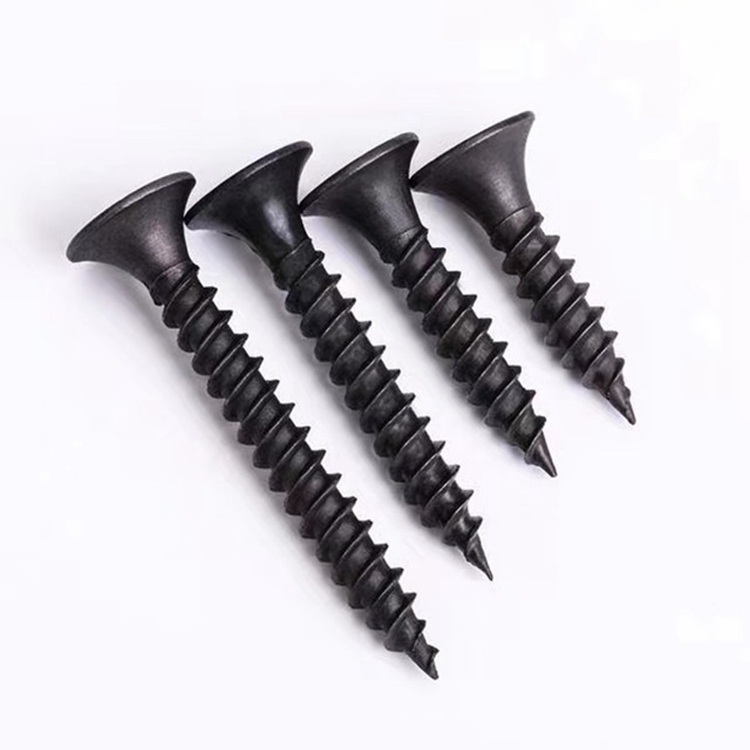High-Quality Zinc Coating Bolts Exporters - Durable Fasteners for Every Need
Sep . 10, 2024 15:32 Back to list
High-Quality Zinc Coating Bolts Exporters - Durable Fasteners for Every Need
The Role of Zinc Coating in Bolt Exportation
In the realm of construction and engineering, the need for durable and corrosion-resistant materials is paramount. One such solution that addresses these needs is the zinc-coated bolt. The process of galvanization, wherein a thin layer of zinc is applied to steel bolts, provides an effective barrier against rust and corrosion. This has made zinc-coated bolts highly sought after, leading to a flourishing market for their exportation.
Zinc-coated bolts are essential in various applications, from building infrastructures such as bridges and towers to manufacturing machinery and automotive parts. The additional layer of zinc not only extends the life of the bolts but also ensures reliability and safety in critical structural applications. With the increasing demand for high-quality fastening solutions across numerous industries, exporters have begun to recognize the immense potential of zinc-coated bolts.
The Role of Zinc Coating in Bolt Exportation
The global market for zinc-coated bolts has expanded significantly, fueled by the growing construction and manufacturing sectors in developing countries. As infrastructure projects are initiated worldwide, the demand for sturdy, reliable fastening solutions is on the rise. Exporters have a crucial role to play in meeting this demand by providing high-quality zinc-coated bolts that comply with international standards.
zinc coating bolts exporters

In addition to their durability, zinc-coated bolts are also cost-effective. The initial investment in galvanized fasteners may be slightly higher than their non-coated counterparts; however, the long-term savings associated with their use often outweigh the upfront costs. With lower maintenance needs and improved lifespan, businesses can benefit economically from using zinc-coated bolts in their projects—particularly in regions prone to corrosion.
Moreover, exporters of zinc-coated bolts must maintain a commitment to quality control and compliance with industry regulations. In an increasingly competitive market, adhering to international standards is fundamental for success. Reputable exporters often invest in advanced quality assurance measures and certifications to ensure that their products meet the expectations of buyers around the globe.
The logistics of exporting zinc-coated bolts also play a significant role in their market success. Efficient supply chain management, strategic partnerships with local distributors, and a clear understanding of international trade regulations are key to thriving in this sector. Exporters must ensure timely delivery and competitive pricing to attract and retain clients in diverse markets.
In conclusion, zinc-coated bolts represent an essential segment of the fastener market with significant export potential. Their durability, cost-effectiveness, and ability to meet diverse industrial needs underline their growing importance. As the demand for reliable construction materials continues to rise, exporters who specialize in zinc-coated bolts are well-positioned to capitalize on global opportunities while contributing to the advancement of infrastructure and machinery worldwide.
Latest news
-
Premium Phosphated Drywall Screws Supplier | Durable, Rust-Resistant
NewsAug.27,2025
-
Reliable Wire Bolts Suppliers | Quality Zinc Plated Fasteners
NewsAug.26,2025
-
Wire Bolts Suppliers: Durable & Reliable Fasteners for Every Project
NewsAug.25,2025
-
Premium Cabinet Bolts Supplier | Wholesale & Custom Solutions
NewsAug.24,2025
-
Reliable Axle Nuts Supplier | Quality & Precision Fasteners
NewsAug.23,2025
-
Durable Bolts for Lawn Mower Handle - Top Supplier & Manufacturer
NewsAug.22,2025
